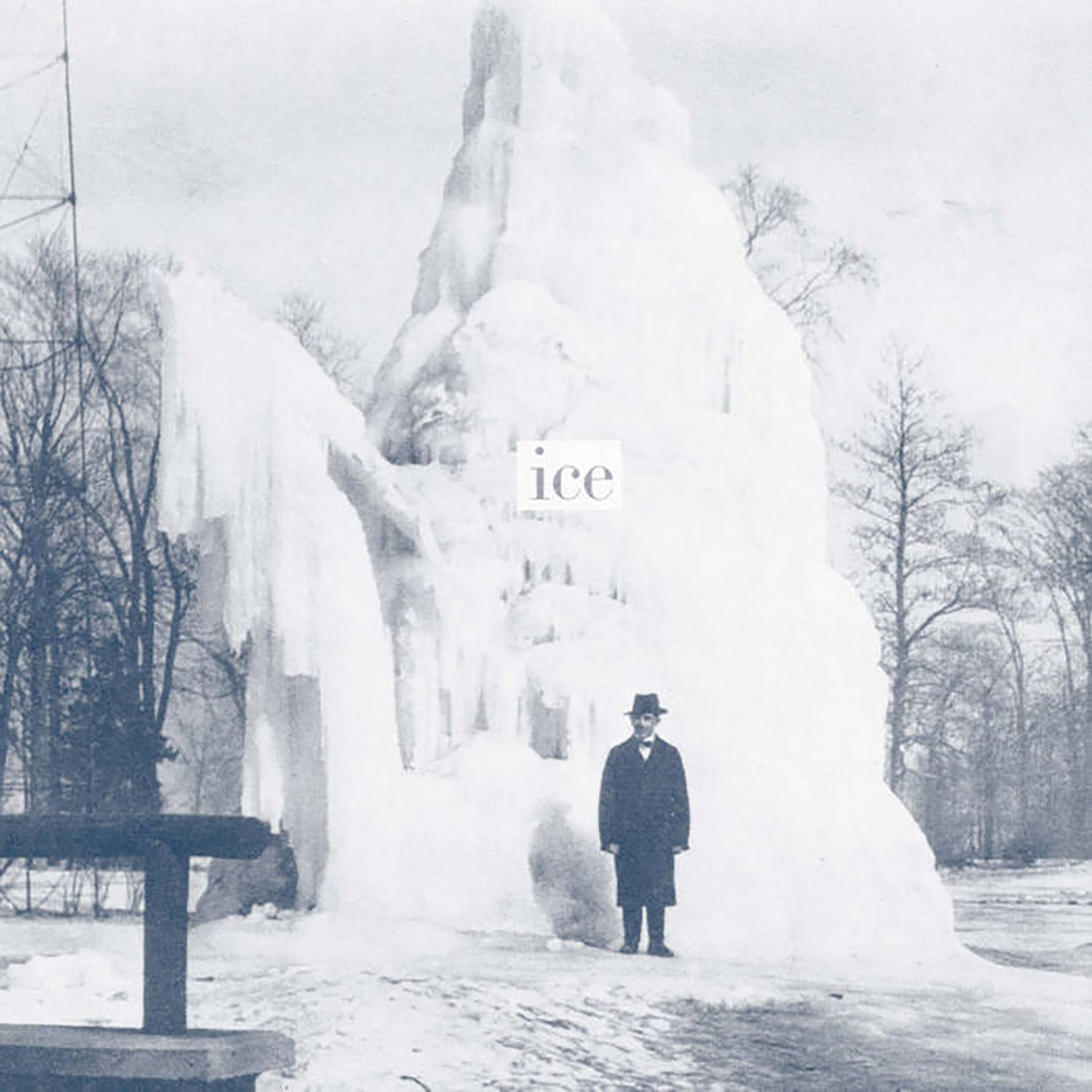 Back in 2008, Steve Roden quietly released one of my favorite ambient albums of all time in a signed limited edition of 250. Of course, I did not realize it at the time, so it took another decade or so before Stars of Ice finally made its way to my ears. Happily, however, Room40 has now reissued Roden's hauntingly beautiful collage of obscure and antique Christmas records, which will hopefully nudge many more receptive ears towards this modest, one-of-a-kind masterpiece. While I am sure I would have greatly enjoyed the original album if I had heard it when it was first released, it is worth noting that my appreciation for texture has evolved considerably over the years, so maybe Stars of Ice uncannily got to me at precisely the right time. In fact, I wonder how significant a role Roden himself has (indirectly) played in my shifting tastes, as he has always been ahead of his time in regard to celebrating details and nuances (as well as inventively repurposing "non-musical" sounds) and we seem to be in the midst of a textural renaissance at the moment. That said, most of Stars of Ice is as nakedly beautiful as music can get, so the quavering murkiness, crackling and popping vinyl, and pleasantly lapping waves of hiss are mere icing on an already gorgeous cake. This is an absolutely brilliant and magical album.
Back in 2008, Steve Roden quietly released one of my favorite ambient albums of all time in a signed limited edition of 250. Of course, I did not realize it at the time, so it took another decade or so before Stars of Ice finally made its way to my ears. Happily, however, Room40 has now reissued Roden's hauntingly beautiful collage of obscure and antique Christmas records, which will hopefully nudge many more receptive ears towards this modest, one-of-a-kind masterpiece. While I am sure I would have greatly enjoyed the original album if I had heard it when it was first released, it is worth noting that my appreciation for texture has evolved considerably over the years, so maybe Stars of Ice uncannily got to me at precisely the right time. In fact, I wonder how significant a role Roden himself has (indirectly) played in my shifting tastes, as he has always been ahead of his time in regard to celebrating details and nuances (as well as inventively repurposing "non-musical" sounds) and we seem to be in the midst of a textural renaissance at the moment. That said, most of Stars of Ice is as nakedly beautiful as music can get, so the quavering murkiness, crackling and popping vinyl, and pleasantly lapping waves of hiss are mere icing on an already gorgeous cake. This is an absolutely brilliant and magical album.
Room40/New Plastic Music
The album takes its name from a Chinese Christmas carol record that was one of the eclectic pair of pieces that Roden salvaged for his primarily sound sources. The other lucky winner was a song entitled "Snow" from a clearly hit-packed 78 entitled "Songs From the First Grade Reader." Unsurprisingly, I suspect both pieces would be nearly unrecognizable to their original composers in the wake of Roden's radical deconstructions, yet this is not one those albums where the character of the original pieces is completely obliterated into noisy abstraction, as Stars of Ice is an unusually melodic entry in the composer's oft-challenging oeuvre. There were apparently also "various other objects and instruments" involved as well, but they never manifest themselves in recognizable ways, as the heart of Stars of Ice is essentially just snatches of vocal melodies and a crackling and hissing backdrop of pleasantly warm and murky organ chords (or at least something that sounds like an organ after Roden was finished with it). For a while, the piece feels like it is just going to linger in suspended animation forever, which would be apt given the "enchanted snow globe/slowly dissolving into the grooves of a wobbly old record" atmosphere, yet new threads (clipped vocal melodies, plinking and shivering strings, a choir, and a colorful host of coos, mumbles, and warbles) soon appear and begin weaving together in interesting and lovely ways. For the piece's first half, the warm chords, bittersweet central melody, and the flickering and ghostly choral snippets conjure one of the most sustained stretches of sublime, pure beauty that I have yet heard. The piece never stops glacially and subtly transforming, however, so that section is just one particularly exquisite phase of an immersive and hallucinatory journey towards a final stretch that approximates a haunted music box haltingly playing a fragmented, wrong speed recording of a rural Chinese or Eastern European traditional music ensemble. Admittedly, I likely would have been perfectly happy if Roden had just lingered in the most beautiful stretch forever, but the subtly intensifying shadows and sense of mystery that follow are what elevate Stars of Ice to something deeper and more complex than merely a masterfully executed collage of lovely sounds. In that regard, the album is characteristically stellar sound art, but Roden's larger achievement is how masterfully he managed to convey ineffable feelings of beauty, sadness, and longing from just a couple of children’s records that no one has presumably thought about in half a century.  
Samples can be found here.
Read More

